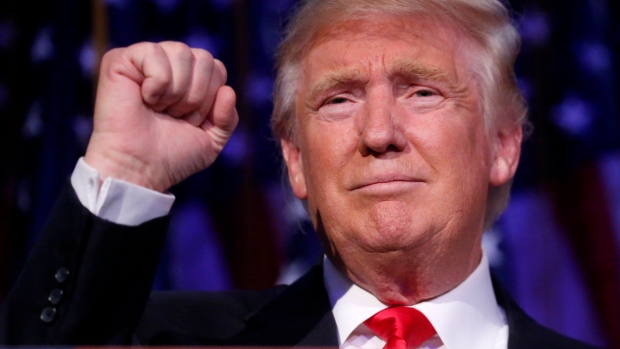
Following two circuit court orders and a Supreme Court ruling, the administration appears ready to implement the latest reboot of Executive Order 13780, “Protecting the Nation from Foreign Terrorist Entry into the United States” (EO-2), subject to limits set by the Supreme Court.
By way of background: On Monday, June 26, 2017, the Supreme Court issued a per curiam order in which it agreed to the government’s request for certiorari and partially granted the government’s application to stay preliminary injunctions in two recent circuit court decisions that enjoined, in part, EO-2.
Section 2(c) of EO-2 suspended the entry of nationals of Iran, Libya, Somalia, Sudan, Syria, and Yemen for 90 days from the effective date of that order, subject to certain “limitations … and exceptions”, including for lawful permanent residents, dual nationals, aliens granted asylum, and refugees already admitted. The countries were chosen because conditions in each, as explained in section 1(e) of EO-2, “demonstrate” that nationals of those countries “present heightened risks to the security of the United States.” Section 3 of EO-2 also provided waivers of section 2 on a “case-by-case basis” for affected foreign nationals.
Section 6(a) of EO-2 suspended decisions on refugee applications for 120 days, and section 6(b) of that order capped the number of refugees to be admitted in FY 2017 at 50,000. Section 6(c) of that order made “case-by-case” waivers of the suspension in section 6(a) available.
The purpose of these suspensions was to provide the executive branch with time to review the screening procedures in place, and the evidence available, for adjudicating applications for immigration benefits and refugee status, essentially to ensure that aliens admitted to this country from the six countries do not pose a national security or public safety threat.
Sections 2(c), 6(a), and 6(b) of EO-2 had been effectively enjoined by two circuit orders, one from the Fourth Circuit and one from the Ninth Circuit. The Supreme Court granted “the Government’s applications to stay the injunctions, to the extent the injunctions prevent enforcement of [section 2(c) of EO-2] with respect to foreign nationals who lack any bona fide relationship with a person or entity in the United States.” It left the “injunctions entered by the lower courts in place” however “with respect to respondents and those similarly situated.” Explaining this order, the Court stated:
In practical terms, this means that [section 2(c) of EO-2] may not be enforced against foreign nationals who have a credible claim of a bona fide relationship with a person or entity in the United States. All other foreign nationals are subject to the provisions of EO–2.
The facts of these cases illustrate the sort of relationship that qualifies. For individuals, a close familial relationship is required. A foreign national who wishes to enter the United States to live with or visit a family member … clearly has such a relationship. As for entities, the relationship must be formal, documented, and formed in the ordinary course, rather than for the purpose of evading EO–2. The students from the designated countries who have been admitted to the University of Hawaii have such a relationship with an American entity. So too would a worker who accepted an offer of employment from an American company or a lecturer invited to address an American audience.
The Court warned, however, that “someone who enters into a relationship simply to avoid [section 2(c) of EO-2]” would not qualify for the injunction, explaining that “a nonprofit group devoted to immigration issues may not contact foreign nationals from the designated countries, add them to client lists, and then secure their entry by claiming injury from their exclusion.”
This order was crafted, the Court asserted, by balancing the equities of the plaintiffs in the lower court cases (U.S. citizen family members of potential entrants whose entry was suspended by section 2(c) of EO-2, as well as the state of Hawaii, students to the state university of which were prevented from entry by that section) against the government’s “interest in preserving national security.”
With respect to the Ninth Circuit injunction on enforcement of the suspension of refugee admissions under section 6(a) of EO-2, and the 50,000-refugee cap in section 6(b) of that order, the Court held that the “equitable balance” it crafted with respect to section 2(c) of EO-2 would apply to those sections, as well:
An American individual or entity that has a bona fide relationship with a particular person seeking to enter the country as a refugee can legitimately claim concrete hardship if that person is excluded. As to these individuals and entities, we do not disturb the injunction. But when it comes to refugees who lack any such connection to the United States, for the reasons we have set out, the balance tips in favor of the Government’s compelling need to provide for the Nation’s security.
Based on this, the Court concluded that:
Section 6(a) may not be enforced against an individual seeking admission as a refugee who can credibly claim a bona fide relationship with a person or entity in the United States. Nor may [section 6(b) of EO-2]; that is, such a person may not be excluded pursuant to [section 6(b) of EO-2], even if the 50,000-person cap has been reached or exceeded. As applied to all other individuals, the provisions may take effect.
According to press accounts, EO-2, with the Supreme Court’s restrictions, will go into effect on Thursday, June 29. In particular, CNN reports that new guidelines for the implementation of that order that were sent out to U.S. embassies and consulates by cable on Wednesday:
[S]ay that applicants must prove a relationship with a parent, spouse, child, adult son or daughter, son-in-law, daughter-in-law or sibling in the US in order to enter the country. …
The cable further describes that other family members — including fiancees, grandparents, grandchildren, aunts, uncles, nieces, nephews, cousins, brothers-in-law, sisters-in-law, and any other “extended” family members will not be considered “close family” under the executive order.
The State Department criteria also applies to all refugees currently awaiting approval for admission to the US.
The network notes that “visas that have already been approved will not be revoked.”
Click HERE to read more.
Vote for Shikha Dhingra For Mrs South Asia Canada 2017 by liking her Facebook page.
You can publish this article on your website as long as you provide a link back to this page.


Be the first to comment